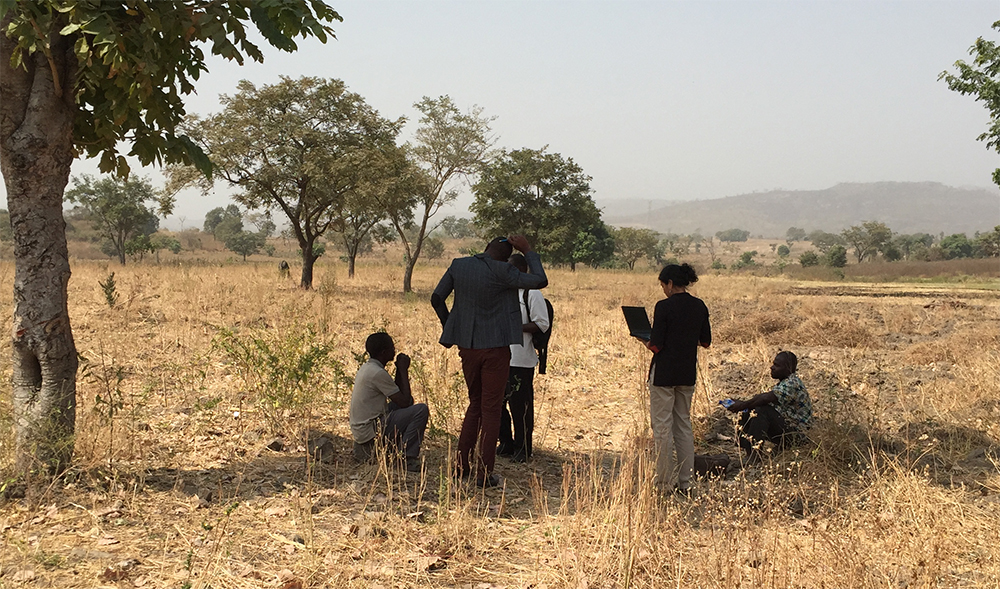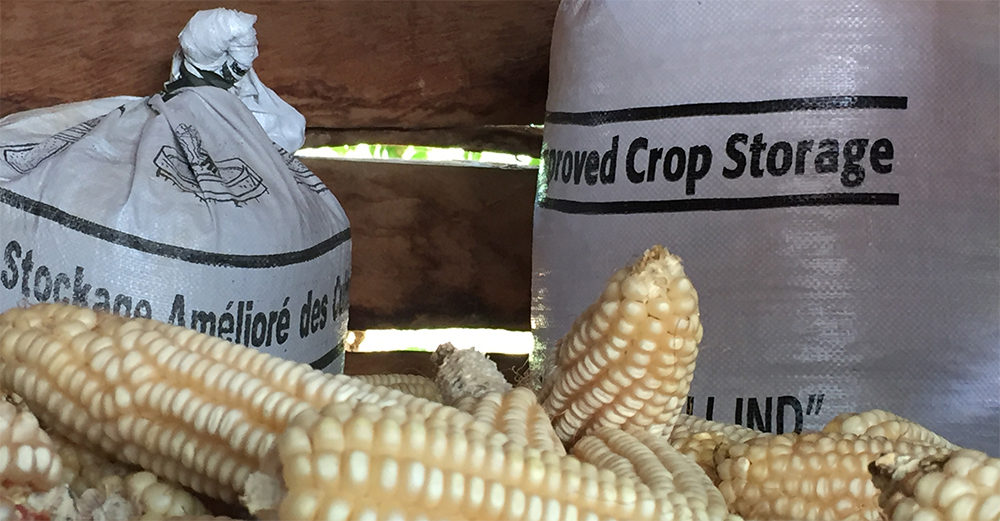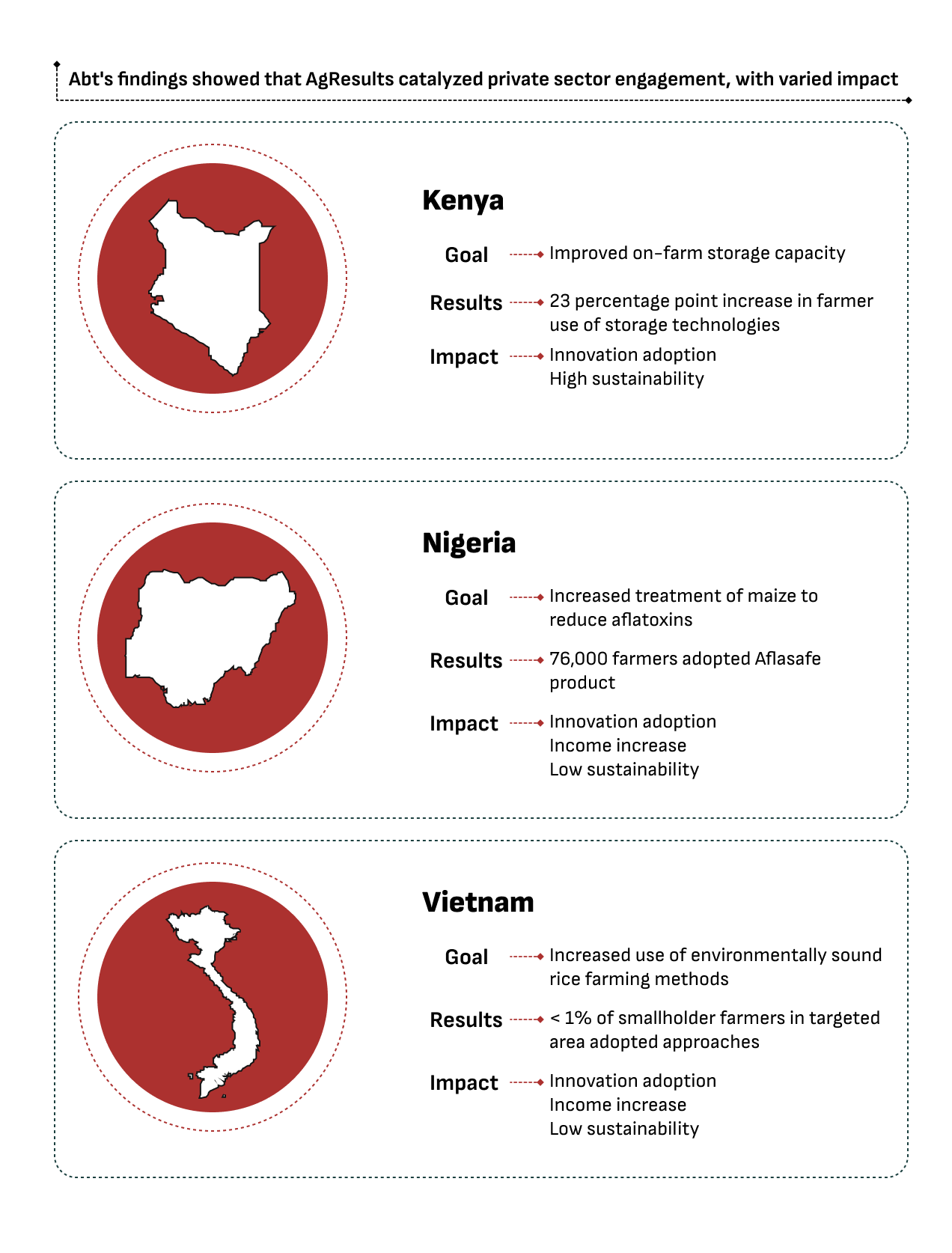WHAT WE'RE DOING
Can pay-for-performance be a catalyst for private sector engagement?
The promise of pull mechanisms as a development tool is based on this hypothesis: With the proper incentives, the private sector can leverage its knowledge of suppliers and consumers to creatively overcome market constraints, develop and scale new technologies, and support sustainable markets that deliver impact for smallholder farmers.
AgResults implementers offer cash prize awards that incentivize commercial firms and entrepreneurs to see the potential in emerging markets. Since 2013, AgResults has supported the development of new seed varieties, improved farming methods, and better post-harvest storage techniques.
As the external evaluation partner, Abt used innovative and adaptable methods to identify AgResults’ contributions to changes in the target market and estimate their impacts on smallholder farmers. We generated evidence for implementers to adapt their programs, improve performance, and optimize effectiveness and efficiency. Our work also contributed to the global evidence base on private sector engagement and pull mechanisms.
IMPACT
Important lessons, clear wins
Abt’s evaluation team helped synthesize lessons around program effectiveness and efficiency. Evaluation findings supported decisions on whether to scale successful approaches, modify approaches, or stop those that were unsuccessful.
Pull mechanisms can successfully engage the private sector. AgResults catalyzed private sector engagement in three of the six projects Abt evaluated in Nigeria, Kenya, and Vietnam. In these cases, multiple independent companies participated in the pay-for-results program, met eligibility criteria for prize awards, and received prizes.
Results-based prizes are most successful when the private sector expects a strong business case beyond the length of the project. AgResults competitors who generated sustained market impact saw the competition and incentive as motivation to invest in the market at scale. But they were also keenly interested in the underlying potential of the market, independent of the AgResults incentive.



